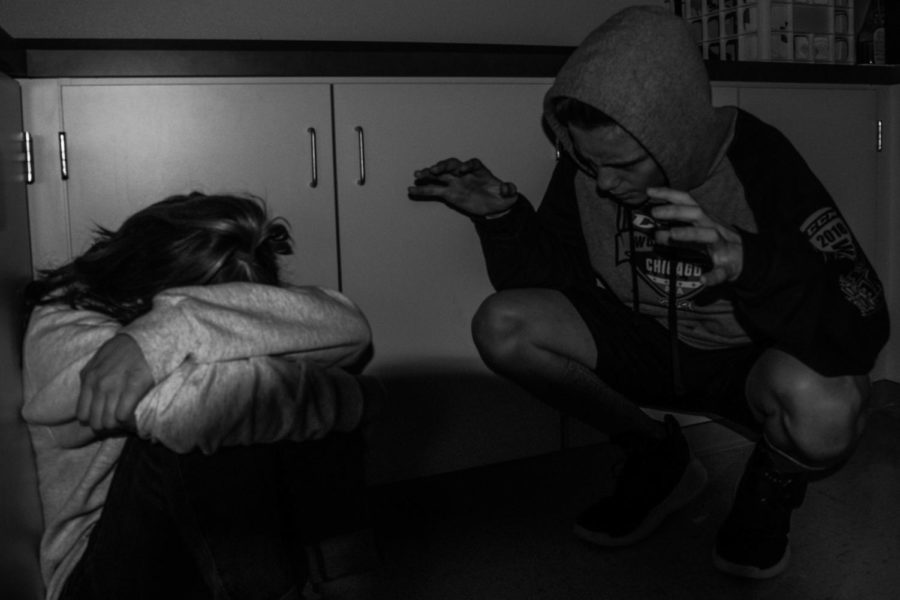The Psychology Behind Nightmares
Nightmares. Everyone has them but there might be a deeper meaning to them.
February 10, 2019
You look back at the scene playing behind you; a gigantic lobster-like creature is chasing you with sharp pinchers ready to snap at anything in its way. Unfortunately for you, you are the only thing blocking the creature’s path. You try to run, but your legs won’t move to your command. Just as the beast reaches its pinchers out to grab you, you wake up.
Thankfully, it was only a nightmare. According to the Better Health Channel, kids start having nightmares as early as the age of two. Having experienced at least one nightmare in their lives, students only have a vague idea of the science behind a nightmare.
“(A nightmare is) something scary that goes on in your head (when you’re sleeping),” said eighth-grader Madison E.
That’s the simple definition. “Nightmares probably evolved to help make us anxious about potential dangers,” said psychologist Deirdre Barrett. “Even post-traumatic nightmares, which just re-traumatize us, may have been useful in ancestral times when a wild animal that had attacked you, or a rival tribe that had invaded might well be likely to come back,”
Our brains are warning us? Crazy.
This theory that nightmares are “threat rehearsals” is called the Threat Simulation Theory. But where exactly do we get these weird sleep-interrupting scenarios that appear in our nightmares and dreams?
“(They come from) scary stuff we see during real life and when we’re awake,” said seventh-grader Aiden C.
Nightmares usually happen during REM hours of sleep, or rapid eye movement sleep. The cortex part of our brain is responsible for creating these terrifying images and the visual cortex is responsible for the vivid detail. During REM, the brain is most active, so when awakened, we usually have a pretty good memory of what the nightmare was about.
“We remember more nightmares because they are often more interesting than a normal happy dream. They alarm our unconscious brain and this means we store away some of what we dream of. Also, a really scary dream is more likely to disturb us to the point where we wake up (to escape it) and that makes it memorable,” said Iodine Zone, a professor of human nutrition.
Nightmares can at times be so startling that we can experience anxiety, stress and frustration hours after getting out of bed. These nightmares can also be from PTSD (post traumatic stress disorder) or other different nightmare disorders.
“Sometimes the ordinary stresses of daily life, such as a problem at home or school, trigger nightmares. A major change, such as a move or the death of a loved one, can have the same effect. Experiencing anxiety is associated with a greater risk of nightmares,” said Mayo Clinic.
So Coyotes, if you’re nightmares start to affect your daily life, try acknowledging what could be the cause of these nightmares. Maybe you’re stressed, traumatized, or just have irregular sleeping habits. Whatever the case may be, make sure to consult an adult or a doctor about this if it becomes too extreme.
“I sit up in my bed and I’ll just think about what happened (in my nightmare) and all the stuff that could possibly go wrong (in real life),” said seventh-grader Noel M., “All the things that could not happen, and what could cause this to happen, what could be the effect of it, and what could stop it from happening,”
Although nightmares are scary to us, most can say that sometimes they help us. Nightmares are a part of life that all will have to go through, even if you remember them or not. Instead of being scared to go back to sleep after experiencing a nightmare, try to reflect on why exactly you had this nightmare. Maybe you might just learn a little bit more about yourself.






